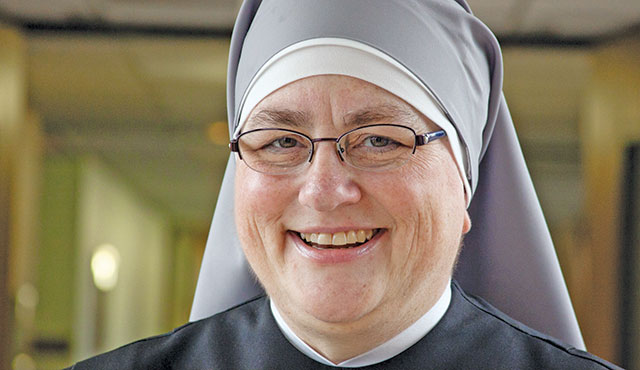One of my favorite expressions has taken on new meaning during the COVID pandemic: “There’s a silver lining to every cloud that sails about the heavens if only we could see it.”
Without forgetting the terrible suffering of so many people, I’ve been amazed by those who have found a silver lining in these dark times by using their social isolation to learn a new skill, delve into a long-held interest, produce new works of literature, music and art or create meaningful connections with others.
Pope Francis is one of these inspiring people. Despite his advanced age, he has penned both an encyclical and a book before the close of 2020. Both works, Fratelli Tutti and Let Us Dream, focus on combatting the throw-away culture with a culture of encounter, tenderness and care for those on the peripheries.
“What is tenderness?” the pope asks. “It is love that draws near and becomes real. A movement that starts from our heart and reaches the eyes, the ears and the hands … The smallest, the weakest, the poorest should touch our hearts: indeed, they have a ‘right’ to appeal to our heart and soul. They are our brothers and sisters, and as such we must love and care for them” (Fratelli Tutti, n. 194).
Francis’ convictions are rooted in Catholic social teaching – human dignity, solidarity and subsidiarity. “Every human being has the right to live with dignity … Unless this basic principle is upheld, there will be no future either for fraternity or for the survival of humanity” (Fratelli Tutti, n. 107).
In Let Us Dream, he writes, “Solidarity acknowledges our interconnectedness; we are creatures in relationship, with duties toward each other, and all are called to participate in society. That means welcoming the stranger, forgiving debts, giving a home to the disabled and allowing other people’s dreams and hopes for a better life to become
our own.”
On the other hand, subsidiarity, he writes, “involves recognizing and respecting the autonomy of others as subjects of their own destiny. The poor are not the objects of our good intentions but the subjects of change. We do not just act for the poor but with them …”
The World Day of the Sick on Feb. 11 gave us a perfect opportunity to practice these values.
In his message for this year’s celebration, the Holy Father reflects on the healing power of relationships. We must strive to create “a covenant between those in need of care and those who provide that care,” he writes, “a covenant based on mutual trust and respect, openness and availability.”
Pope Francis reminds us that it is Jesus himself who asks us to stop and listen to those who are sick or disabled. He asks us to establish personal relationships with them, “to feel empathy and compassion, and to let their suffering become our own as we seek to serve them.”
The pandemic has made us more aware of those who have chosen to share in the suffering of the sick, seeing them as neighbors and members of our one human family.
The pope lauds “healthcare personnel, volunteers, support staff, priests, men and women religious, all of whom have helped, treated, comforted and served so many of the sick and their families with professionalism, self-giving, responsibility and love of neighbor.”
The pope describes this closeness to suffering as a precious balm of consolation. I think of it as a silver lining in the dark clouds that still hover over us nearly a year after the onset of the pandemic.
To honor the World Day of the Sick, this year let’s ask ourselves how we can become a silver lining to someone passing through this COVID storm. We might take the time to express our appreciation to healthcare workers, or to reach out to a sick relative or neighbor, offering whatever assistance they may need.
Through our compassion, may the sick who are passing through darkness find a silver lining by realizing how much they are loved and cherished by others.

